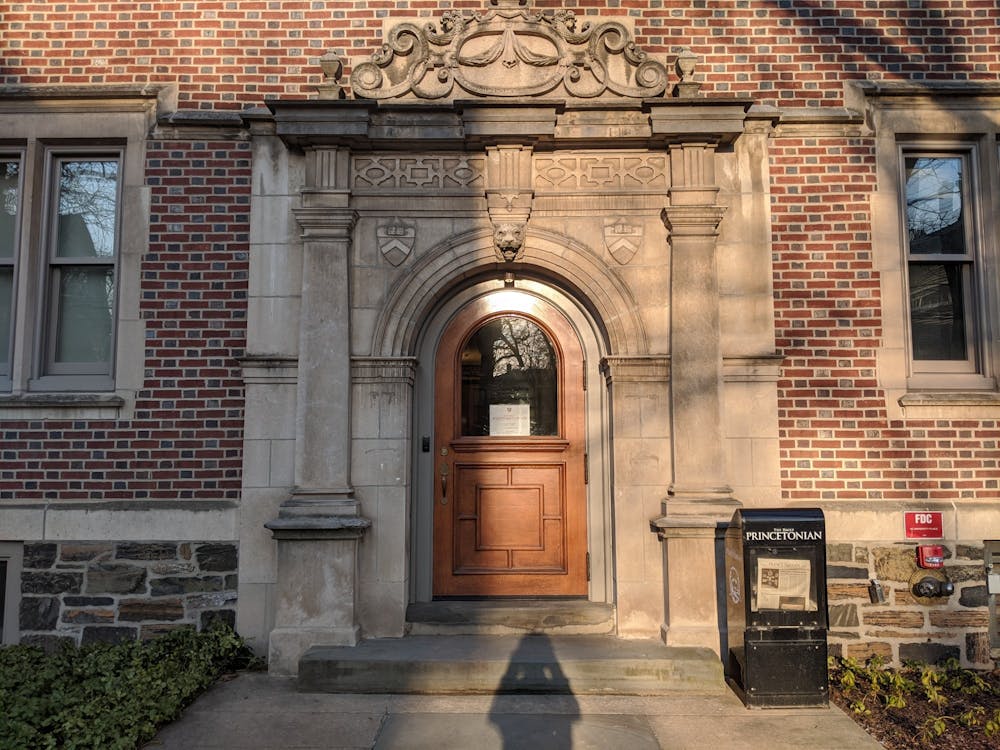In a letter published in the November 2021 issue of Princeton Alumni Weekly (PAW), Chair of the PAW board Marc Fisher ’80 announced that the magazine will retain its editorial independence despite the University now funding 100 percent of the magazine’s budget, among other changes.
This most recent announcement comes a few months after a previous letter from Fisher was published in the July issue of the PAW, informing readers that the University planned to take on complete financial responsibility for the magazine without guaranteeing its continued editorial independence.
The July letter explained that while this would eliminate “the burden on classes that until now have helped pay for the magazine,” it would also threaten the PAW’s role as “an independent voice that reports on the life of the University without fear or favor.”
“To PAW’s board members, journalists, and a remarkable number of alumni who expressed their support, this was cause for alarm,” Fisher wrote in his October letter announcing the PAW’s continued independence.
The changes to the relationship between the PAW and the University are articulated in a new memorandum of understanding crafted between President Christopher Eisgruber ’83 and Fisher on behalf of the PAW board.
In addition to the University setting and providing an annual budget for the PAW, the University’s Office of General Counsel will designate one of its attorneys to provide legal support to the magazine. Additionally, the memo changes the composition of the PAW’s advisory board by adding a member appointed by the University president. President Eisgruber has chosen Vice President and Secretary of the University Hilary A. Parker ’01 to fill this role. Parker has contributed to the PAW as a freelance writer in the past.
Each issue of the PAW will continue to provide space for a “President’s Page” through which the University president may communicate with alumni without revision from the PAW. The magazine will also retain its ability to raise additional funds through advertising.
With the exception of the President’s Page, internal advertising for the University, and legal review, the memorandum of understanding states that “the University shall not provide content for publication or review articles in advance of publication for the purposes of editing or revising content.”
Both alumni and students raised concerns about the potential loss of the PAW’s independence in responses to the July letter.
Emma Treadway ’22, Editor-in-Chief of The Daily Princetonian, wrote a letter from the editor published Aug. 3 titled Save the PAW's Editorial Independence, cautioning that “the publication of alumni’s candid thoughts is threatened if the University begins to oversee editorial operations.”
“As truth-tellers, we cannot let go of the editorial independence that allows all truths to be told,” she wrote.
Alumni reacted to the July letter by sharing responses on the PAW’s website. J. Reagan Kerney ’68 wrote that while, “the University acts with the highest intentions … I raise a tiny, insignificant voice. Leave the PAW alone, Princeton. Be worthy of thy name.”

Michael Sklar ’84 commented that “should PAW’s board accept the University’s offer, the magazine will no longer be my primary source of information for what’s really happening on campus and across the broader alumni community. It will be just another multi-page advertisement for the school, one that gets skimmed or pre-emptively recycled rather than being read.”
Following the October announcement of the new agreement, alumni and students were pleased that the PAW retained its independence, but expressed concerns about the long-term effects of this decision.
“This seems like a very reasonable outcome to a difficult quandary,” wrote John Nealon ’77.
Vignesh Panchanatham ’22, who currently writes for the PAW, offered a similar opinion on the agreement.
“We have all seen the struggles that all print publications have faced in recent years, and I’m sure PAW is no exception. I'm glad that PAW will still be able to operate and provide objective content to current and future alumni,” he wrote in an email to the ‘Prince.’
“As a writer for PAW, I am particularly happy that I do not need to hesitate before pitching articles, and I'm glad that will continue,” he continued.
Despite guarantees of editorial independence, some are still concerned about the influence University funding may have on the PAW coverage.
“Pick a lane. Editorially independent or not. Can’t be both,” Susan Patton ’77 commented.
Grady Trexler ’24 is a freelance writer for the PAW and believes that while the PAW’s editorial process will not see significant changes in the near future, there may be long-term repercussions on its ability to report objectively on University affairs.
“Obviously, it’s not ideal for a magazine to be fully funded by the thing it’s covering,” he said in an interview with the ‘Prince.’ “I don’t know if I totally buy that 25 years down the road the University’s not going to try to exert control over the magazine.”
Treadway hopes the controversy over the PAW’s relationship with the University and the current agreement prompt further awareness surrounding the necessity for editorial independence in journalism.
“I’m thrilled at this outcome, and I’m thankful that the situation was resolved without too much difficulty. However, I do think the issue of editorial independence — and the possibility that the PAW could have lost it — should remain forefront in our minds as we continue to report and hold the University accountable,” Treadway said.
Anna Cornelissen is a news contributor for the ‘Prince.’ She can be reached at annacornelissen@princeton.edu.








